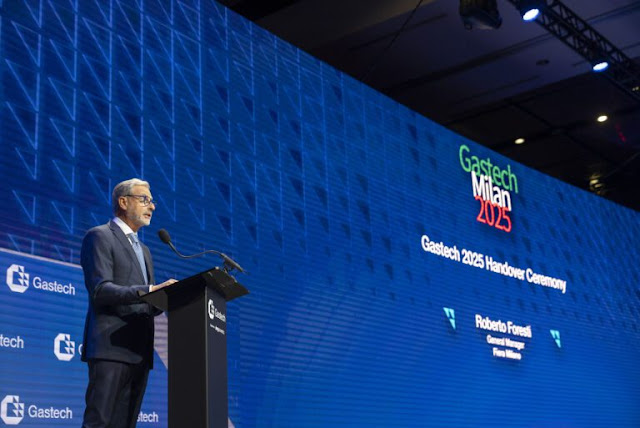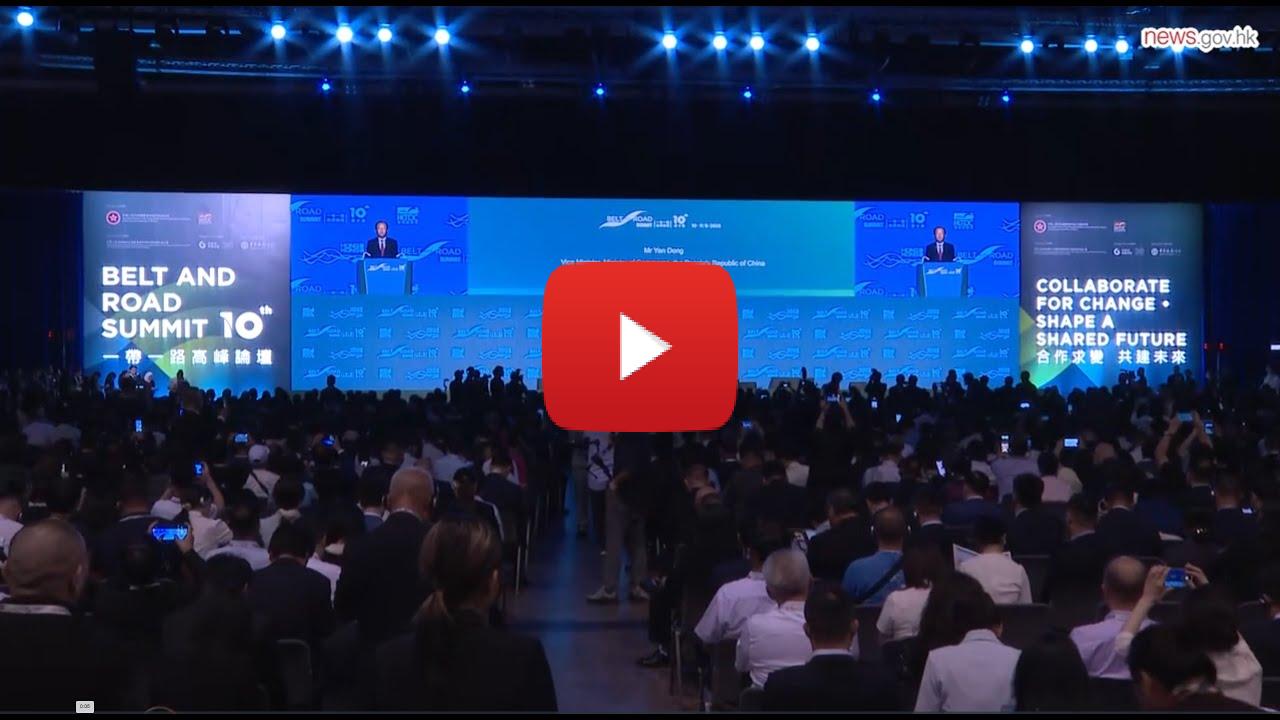The Gastech 2025 conference, a premier global platform for the energy industry, convened in Houston, Texas, bringing together policymakers, industry leaders, and innovators to address the pressing challenges and opportunities in the global energy landscape. The event underscored the critical role of partnerships, artificial intelligence (AI), and natural gas in shaping a sustainable and secure energy future. With a focus on collaboration, technological innovation, and the strategic importance of natural gas, Gastech 2025 highlighted actionable solutions to meet rising global energy demands while advancing decarbonization efforts. This article provides a comprehensive overview of the key discussions, insights, and initiatives presented at the conference, emphasizing the transformative potential of these themes in addressing the energy trilemma of security, affordability, and sustainability.
A Platform for Global Energy Dialogue
Gastech 2025 served as a critical forum for stakeholders across the energy value chain, including government officials, energy executives, technology providers, and environmental advocates. Hosted in Houston, a global hub for energy innovation, the conference facilitated high-level discussions on navigating the complexities of the energy transition. Attendees included representatives from major energy companies such as ExxonMobil, Chevron, and Aramco, alongside policymakers from energy-producing and consuming nations. The event’s agenda was structured to address the multifaceted challenges of ensuring energy security, reducing carbon emissions, and maintaining affordability amid geopolitical uncertainties and evolving market dynamics.
The conference featured a series of keynote addresses, panel discussions, and technical sessions, with a strong emphasis on fostering collaboration between public and private sectors. The urgency of addressing climate change while meeting growing energy demands was a recurring theme, with speakers advocating for pragmatic solutions that balance environmental goals with economic realities. The discussions underscored the need for a diversified energy mix, with natural gas positioned as a critical enabler of the transition to cleaner energy systems.
Strategic Partnerships: The Bedrock of Energy Transition
One of the central themes at Gastech 2025 was the importance of strategic partnerships in driving the energy transition. Industry leaders emphasized that no single entity—whether a government, corporation, or organization—can address the complexities of the global energy system in isolation. Collaborative efforts across borders, industries, and disciplines were highlighted as essential for scaling innovative technologies, securing investments, and implementing effective policies.
Public-Private Collaboration
Speakers at the conference stressed the need for stronger public-private partnerships to accelerate the deployment of clean energy technologies. Governments were urged to create enabling environments through supportive policies, regulatory frameworks, and financial incentives, while private companies were encouraged to invest in research, development, and deployment of low-carbon solutions. For instance, representatives from the U.S. Department of Energy outlined initiatives to incentivize carbon capture, utilization, and storage (CCUS) projects, which require significant collaboration between policymakers and industry players.
A notable example discussed was the partnership between ExxonMobil and the U.S. government to develop large-scale CCUS facilities in the Gulf Coast region. These projects aim to capture carbon dioxide emissions from industrial sources and store them underground, reducing the carbon footprint of natural gas and other fossil fuel operations. Such initiatives demonstrate how public-private collaboration can bridge the gap between technological innovation and practical implementation.
International Cooperation
International partnerships were also a key focus, with speakers highlighting the importance of cross-border collaboration to address global energy challenges. The conference featured discussions on initiatives such as the EU-Middle East energy corridor, which aims to facilitate the export of natural gas from the Middle East to Europe, enhancing energy security in the region. Similarly, African nations, including Nigeria, emphasized the need for partnerships to unlock the continent’s vast natural gas reserves, which could play a pivotal role in meeting global demand while supporting local economic development.
The African energy sector was a particular point of focus, with leaders calling for increased investment in infrastructure to harness the continent’s resources. Nigeria, a major gas producer, was highlighted as a potential leader in supplying liquefied natural gas (LNG) to global markets. However, speakers noted that realizing this potential requires partnerships with international energy companies, financial institutions, and technology providers to build pipelines, LNG terminals, and other critical infrastructure.
Industry-Academia Collaboration
Another dimension of partnerships discussed at Gastech 2025 was the collaboration between industry and academia to drive innovation. Universities and research institutions were recognized for their role in developing cutting-edge technologies, such as advanced materials for energy storage and AI-driven optimization tools. Industry leaders expressed a commitment to funding research programs and fostering knowledge exchange to accelerate the commercialization of these technologies.
For example, Chevron announced a partnership with a leading U.S. university to develop AI algorithms for optimizing drilling operations, reducing costs, and minimizing environmental impacts. Such collaborations were cited as critical for bridging the gap between theoretical research and practical applications in the energy sector.
Artificial Intelligence: Transforming the Energy Sector
Artificial intelligence emerged as a game-changer at Gastech 2025, with industry leaders showcasing its potential to revolutionize energy production, distribution, and consumption. AI’s ability to process vast amounts of data, optimize operations, and predict outcomes was highlighted as a key tool for improving efficiency and reducing emissions across the energy value chain.
AI in Exploration and Production
In upstream operations, AI is being used to enhance the efficiency of exploration and production processes. Advanced algorithms can analyze seismic data to identify potential hydrocarbon reserves with greater accuracy, reducing the need for costly and environmentally invasive drilling. Companies like Schlumberger and Halliburton showcased AI-driven tools that optimize drilling operations, minimize downtime, and improve safety.
For instance, AI-powered predictive maintenance systems were demonstrated to monitor equipment in real time, identifying potential failures before they occur. This not only reduces operational costs but also enhances safety by preventing accidents. Additionally, AI is being used to optimize reservoir management, enabling companies to extract more resources from existing fields while minimizing environmental impacts.
AI in Energy Efficiency and Emissions Reduction
AI’s role in improving energy efficiency and reducing emissions was another key focus. By analyzing data from sensors and smart grids, AI systems can optimize energy distribution, reduce waste, and improve the integration of renewable energy sources into the grid. For example, a panel discussion featuring representatives from Siemens and General Electric highlighted how AI-driven energy management systems are helping utilities balance supply and demand, particularly in regions with high penetration of solar and wind power.
In the downstream sector, AI is being used to optimize refining processes, reducing energy consumption and emissions. Aramco presented a case study on its use of AI to optimize its refineries, achieving significant reductions in carbon dioxide emissions while maintaining output levels. Such innovations were cited as critical for aligning the oil and gas industry with global climate goals.
AI in Carbon Capture and Storage
AI is also playing a transformative role in advancing CCUS technologies. By modeling complex geological formations and predicting the behavior of stored carbon dioxide, AI is helping to improve the efficiency and safety of carbon storage projects. A technical session at Gastech 2025 showcased how AI-driven simulations are being used to identify optimal storage sites and monitor the long-term integrity of storage facilities.
For example, Occidental Petroleum discussed its use of AI to optimize a large-scale CCUS project in Texas, which aims to capture and store millions of tons of carbon dioxide annually. The project leverages AI to analyze real-time data from injection sites, ensuring safe and effective storage while minimizing costs.
Natural Gas: A Cornerstone of the Energy Transition
Natural gas was a central focus at Gastech 2025, with industry leaders positioning it as a critical bridge fuel in the transition to a low-carbon future. Its lower carbon intensity compared to coal and oil, combined with its abundance and versatility, makes it an attractive option for meeting global energy demands while reducing emissions.
The Role of LNG in Global Energy Markets
The conference highlighted the growing importance of LNG in addressing energy security concerns, particularly in Europe and Asia. The disruption of Russian gas supplies to Europe has accelerated demand for LNG from alternative sources, such as the United States, Qatar, and Australia. Gastech 2025 featured discussions on expanding LNG infrastructure, including new terminals and export facilities, to meet this demand.
The United States, in particular, was recognized as a leading LNG exporter, with companies like Cheniere Energy and Freeport LNG announcing plans to expand their export capacities. These developments were seen as critical for ensuring a stable supply of natural gas to allies in Europe and Asia, particularly in the context of geopolitical uncertainties.
Natural Gas in Decarbonization Efforts
While natural gas is a fossil fuel, its role in decarbonization was a key point of discussion. By replacing coal in power generation, natural gas can significantly reduce greenhouse gas emissions. Additionally, advancements in CCUS and methane leak detection technologies are helping to further reduce the environmental impact of natural gas production and use.
For instance, BP showcased its efforts to minimize methane emissions across its natural gas operations, using advanced sensors and AI to detect and repair leaks in real time. Such initiatives were cited as critical for ensuring that natural gas remains a viable component of the energy mix in a carbon-constrained world.
Natural Gas in Emerging Markets
The conference also highlighted the role of natural gas in supporting economic development in emerging markets, particularly in Africa and Asia. In Africa, countries like Nigeria, Mozambique, and Algeria are leveraging their vast gas reserves to drive industrialization and provide affordable energy to their populations. Gastech 2025 featured a dedicated session on Africa’s gas potential, with speakers calling for increased investment in infrastructure to unlock the continent’s resources.
In Asia, natural gas is seen as a critical fuel for meeting the region’s rapidly growing energy demand. Countries like India and China are investing heavily in LNG import infrastructure to reduce their reliance on coal and improve air quality. The conference showcased projects such as India’s expansion of LNG regasification terminals, which aim to increase the country’s capacity to import and distribute natural gas.
Addressing the Energy Trilemma
The discussions at Gastech 2025 were framed around the energy trilemma: balancing security, affordability, and sustainability. Industry leaders acknowledged that achieving this balance requires a pragmatic approach that leverages existing resources, such as natural gas, while investing in innovative technologies like AI and CCUS.
Energy Security
Energy security was a top priority, particularly in light of recent geopolitical disruptions. The conference emphasized the importance of diversifying energy sources and supply routes to reduce reliance on single suppliers. Natural gas, with its global availability and flexible transportation options (e.g., LNG), was highlighted as a key tool for enhancing energy security.
Affordability
Affordability remains a critical concern, particularly for developing nations. Speakers noted that while renewable energy sources like solar and wind are becoming more cost-competitive, natural gas remains a more affordable option for many countries, particularly in the short to medium term. The challenge, they argued, is to ensure that investments in natural gas infrastructure do not lock in long-term dependence on fossil fuels, but rather serve as a bridge to a cleaner energy future.
Sustainability
Sustainability was a cross-cutting theme, with speakers emphasizing the need to align energy strategies with global climate goals. The Paris Agreement and net-zero targets were frequently referenced, with companies outlining their commitments to reducing emissions and investing in low-carbon technologies. The integration of AI, CCUS, and renewable energy sources into natural gas operations was seen as a critical step toward achieving these goals.
Innovation and Technology Showcase
Gastech 2025 featured an extensive exhibition of cutting-edge technologies, with companies showcasing innovations in LNG, CCUS, hydrogen, and AI. The exhibition floor was a hub of activity, with demonstrations of advanced equipment, software, and services designed to enhance the efficiency and sustainability of energy operations.
For example, Baker Hughes unveiled a new suite of digital tools for optimizing LNG production, while TotalEnergies showcased its advancements in blue hydrogen production, which uses natural gas with carbon capture to produce low-carbon hydrogen. These innovations were seen as critical for positioning the energy industry at the forefront of the transition to a sustainable future.
The Path Forward
As Gastech 2025 concluded, the consensus among attendees was clear: the energy transition is a complex, multifaceted challenge that requires collaboration, innovation, and pragmatism. Strategic partnerships between governments, industry, and academia will be essential for scaling solutions and mobilizing the necessary resources. AI and other advanced technologies will play a transformative role in improving efficiency, reducing emissions, and unlocking new opportunities. Meanwhile, natural gas will continue to serve as a critical bridge fuel, supporting energy security and affordability while paving the way for a cleaner energy future.
The conference also underscored the importance of inclusivity in the energy transition. Emerging markets, particularly in Africa and Asia, must be supported with investments and technology transfers to ensure that they can participate in and benefit from the global shift to cleaner energy systems. By fostering collaboration, embracing innovation, and leveraging the strengths of natural gas, the global energy industry can navigate the challenges of the 21st century and build a sustainable, secure, and equitable energy future.
In conclusion, Gastech 2025 provided a platform for bold ideas, practical solutions, and meaningful partnerships. The insights and initiatives presented at the conference will undoubtedly shape the global energy agenda in the years to come, driving progress toward a balanced and sustainable energy ecosystem. By harnessing the power of partnerships, AI, and natural gas, the industry is well-positioned to address the energy trilemma and deliver on the promise of a cleaner, more resilient energy future.






